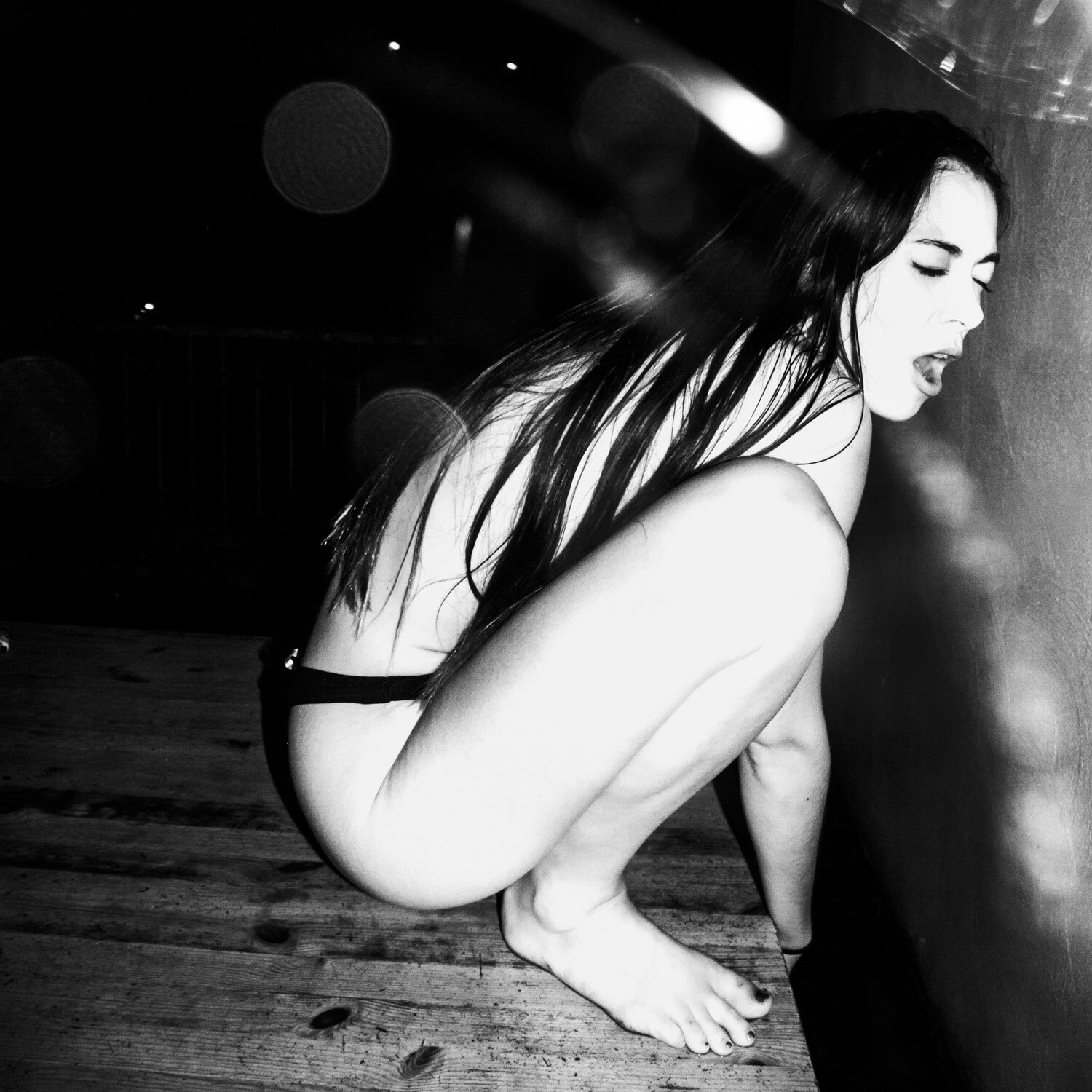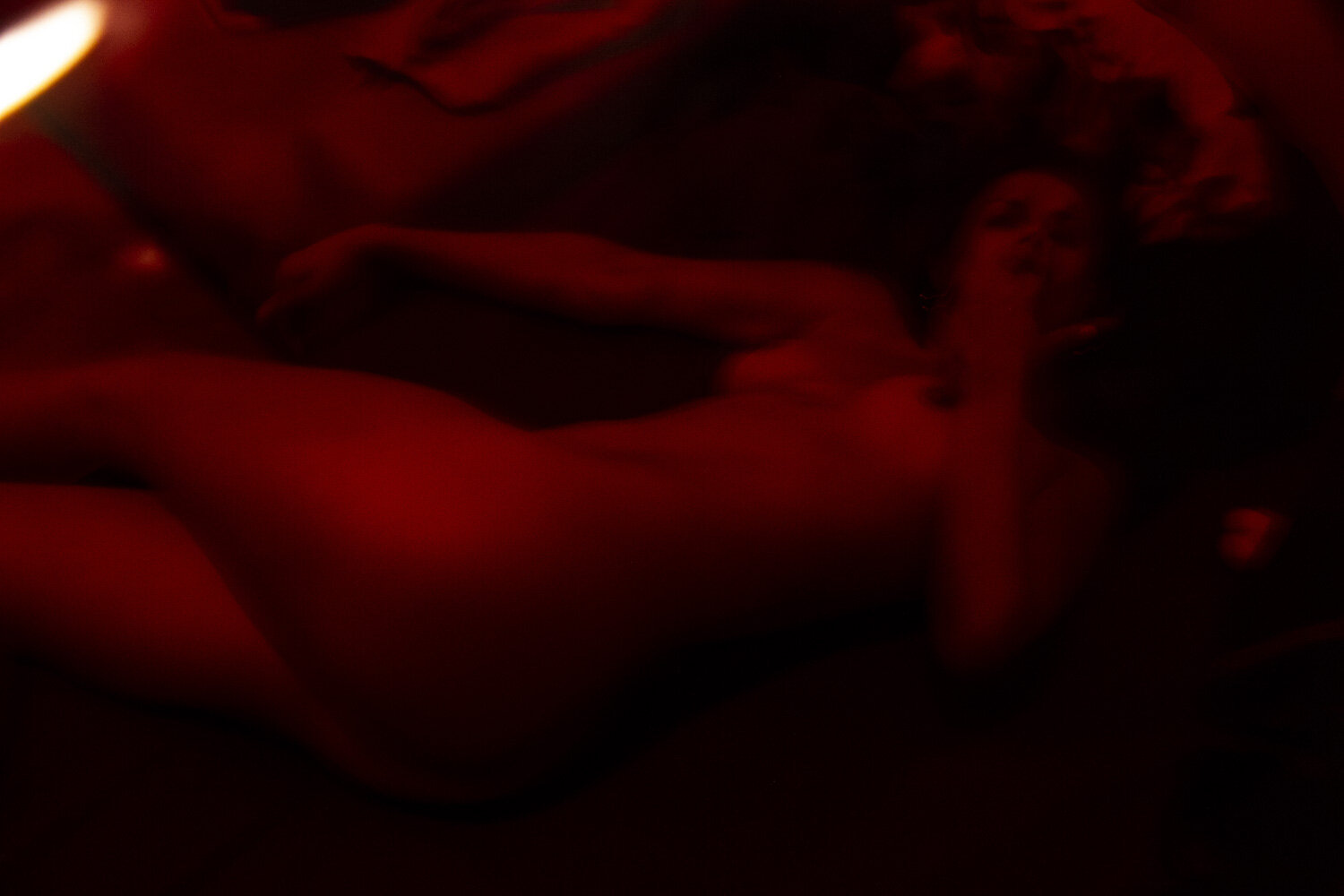Linda Zhengovà: The Real Unconstrained Self
Courtesy of Linda Zhengova
Interview Julian Lucas
Photography Courtesy of Linda Zhengova’
Catharsis is a self published photobook by Linda Zhengova’. The books caught my eye during my daily search for new photobooks while scrolling social media. Her project began not too long ago, in the year 2019, only two years ago. The work emerged from personal hurdles, which Linda was able to maneuver through to create work that translates into something most intriguing.
Linda Zhengova’ is a Czech photographer and writer who currently lives and works in the Netherlands. The 2018 graduate of Leiden University studied International Studies. In 2019 she graduated from MA in Media Studies (specialization in Film and Photographic Studies) at Leiden University with distinction (cum laude).
She holds a masters in Media Studies with a concentration in cinema and photography. Linda also finished completed and under graduate in Photography at the Royal Academy in The Hague.
Can you describe who you are and what you do?
This is a very good question as I keep asking that myself all the time J…
Besides being constantly lost, I am a Czech Chinese photographer and writer based in the Netherlands. Currently, I am a contributing writer to GUP Magazine and Discarded Magazine. I also manage a photobook store in Amsterdam – ARTIBOOKS. In terms of my personal work, I have recently self-published two books – ‘The Ambiguity of Visual Representations of Trauma’ (2020) and ‘Catharsis’ (2021).
Are there struggles with being bi-racial?
The Struggle of my life! Both in my home country the Czech Republic and now the Netherlands. My Chinese side gets always fetishized and my Czech side, now the Netherlands always follows this Eastern European trash baggage. Plus all the racism after Covid.
Yes, I don’t think many people understand how exhausting it can be actually.
How do you want your work to be articulated? How has your work been received by the world?
Above all, I always make work for myself, not others… Starting from the private, only then I can make it public. I never produce work “for someone” as then I wouldn’t be true to myself.
Regarding the reception of my work, I am still not sure yet as I feel people started noticing my work only recently so let’s see where it goes.
Courtesy of Linda Zhengova
Being a process, can you explain your approach to photography?
Me and my photographs are inseparable. I consistently make work that is very personal and intimate as I feel that I have something to say about the topics I cover since they come from my personal experience. Also, I do a lot of research for my projects as I am interested in how theory ties into practice – this combination always intrigued me.
Do you feel photography has changed within the last 9 years?
Nine years ago, is exactly the time when I made my first pictures. Back then, my perception of the “photography world” was very small. I was around 15 or 16 when I got my first DSLR camera and started exploring my surroundings. My inspiration came through what I found on the internet; it was just a minimal fraction of what I have seen throughout the years up until today.
If I compare the type of photography at the time with photography of today, I see that photographers have come far in the sense that we try to push the boundaries and detach from established norms and canons more and more. Both in terms of topics covered and techniques, so I notice a more positive trend as photography became way more diverse. At some point, I am even questioning whether photography still exists, or I mean the way as we know it from before since “straight” representation of reality is long gone…
I guess the society changed so, so did the medium…
Courtesy of Linda Zhengova
Courtesy of Linda Zhengova
Your body of work seems to define life highlighting femininity, gender, and experience. As a woman photographer, what don't male photographers understand, when photographing a woman's body?
The notion of femininity is the focus point of a current project - On Motherhood, Femininity and Female Friendships - I am working on with my dear friend Alex Blanco. I see femininity and female experience as a certain spectrum, not a linear thing but rather a complete rollercoaster. I am always trying to capture this diversity, not to portray women in a singular way to avoid people boxing them into certain categories. I photograph their desires, struggles, emotions, and environments through their body and metaphorically through flowers.
Nudity in this case is not only serving voyeurism or sexual pleasure… for me, instead, it represents certain states, forms, or shapes that refer to something beyond the body, perhaps, beyond time and space. That the portrayal of bodies transports you somewhere deep in your mind because you get a glimpse of the real, unconstrained self.
With all the women I collaborate with, I first try to sense their energy and see how far we can go in the process, and I also leave it up to them how they want to be shown. During some sessions, I barely direct the scenes, we just go with the flow. Always unexpected and traveling together… So, I don’t know about men, but I just show how I see women with the attempt to move beyond the male gaze. I make pictures for the pleasure of both of us.
Intimacy is how I would articulate your study. You capture intimacy so well. I take it you relate closely to the people you photograph?
Yes, you are right. However, I have started going in this photography direction only recently. Due to a lot of turbulences in my personal life and the pandemic, I tend to stick around a small group of people that I trust and often get inspired by. Usually, my closest friends are modeling for me, especially for the latest project On Motherhood, Femininity and Female Friendships. I think our close connection then resonates well through the photographs… It somehow feels more real. The moments we create together or the energy we sense is something mutual, it is this intensity and rawness that I try to capture. The process is so liberating - having the freedom to do whatever you want while embracing each other’s presence. I love that; and I am so grateful to those who joined me on these sessions of self-exploration and acceptance.
Courtesy of Linda Zhengova
Let's talk about your new book Catharsis. You completed this particular study between 2019 and 2020. The driving force behind Catharsis is the battle of reality and experience of trauma. Can you explain what your approach was to this specific study?
In 2019, I started academic research on the topic of trauma and photography which eventually resulted in my bachelor thesis ‘The Ambiguity of Visual Representations of Trauma’. This beginning process helped me getting know how other photographers are approaching the topic and from that moment, I was then able to formulate my own approach based on my experience.
Only then, I started photographing. I knew the project must become a book as this format is perfect for combining text and images together in a compelling way as both elements can then shape each other. My goal was to create something so personal that it becomes universal in the end. That I reveal my most painful memories, vulnerabilities, and insecurities at once to which people can hopefully later relate to and sense a bit of catharsis themselves. We have all experienced some sort of trauma in our lives and regardless of the actual event, the experience is then shared; and this is the connecting factor between me and the viewer.
Is Catharsis a healing process or does the series provide comfort?
For me, Catharsis is just a starting point... After months filled with PTSD, it was my coping mechanism to confront my trauma through photography. There were times when I couldn’t concentrate at all or take a single picture for long periods, but the idea of the project kept on pushing me to go forward – to open things in my mind that were closed for years, and I had no intentions of getting back to. In this sense, the photography process was very helpful in avoiding further suppression of the event. I was finally able to confront it.
Catharsis provided a brief sense of relief after the book was created as to the last moment, I was hesitant whether to release it or not. When I did, it put a bit of weight off my shoulders.
Courtesy of Linda Zhengova
Can you explain gender being a social construct and how it relates to your project, Showering with Glasses? I really enjoy this series by the way.
Thank you, Julian. The title of the project reflects the way I perceive gender, sexuality, and social constructs in general. Quite a simple and perhaps funny story of how the title came about: If I don’t wear my contacts, I always shower with glasses. I never thought it was weird to do it until someone told me I am doing something strange. This absurd situation made me think about how everything in life is structured based on what someone said and decided to be “correct” or “normal” and that’s how the project emerged. My work is exactly about resisting these dogmas and crossing the already established boundaries the society came up with.
Julian Lucas, is fine art photographer, photojournalist, and creative strategist. Julian also works as a housing specialist which, includes linking homeless veterans to housing. Julian has lived in Chicago, Inglewood, Portland, and the suburbs of Los Angeles County including Pomona.






